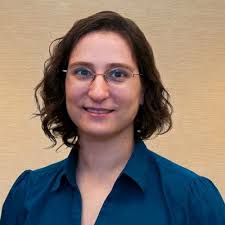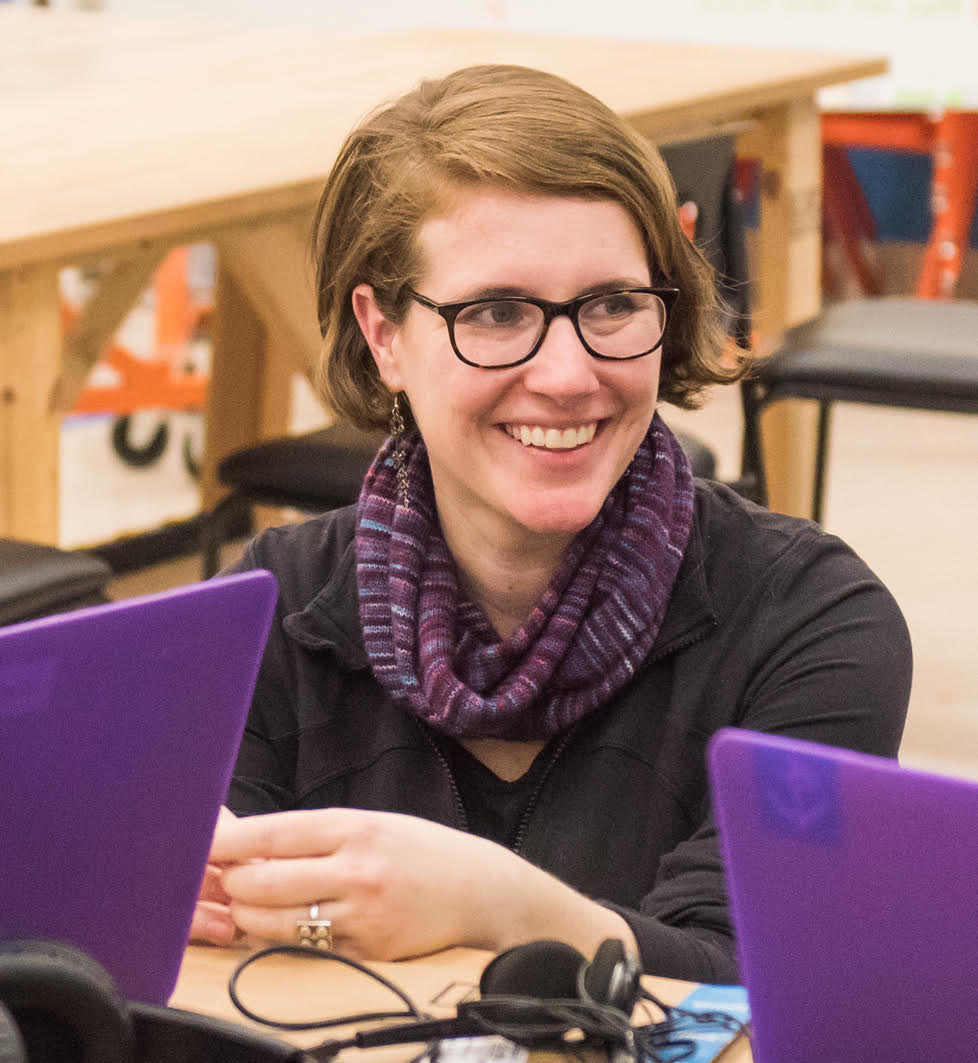Welcoming NYU Tandon’s Newest Faculty Members
As NYU Tandon becomes home to increasing numbers of female students — the Class of 2022 is 43 percent female — we’re also welcoming new female professors who can serve as savvy mentors and inspirational role models.
Among the newest members of the faculty are Amy Hurst and Rachel Greenstadt, each a powerhouse in her field and each an important addition to our Tandon community.
Rachel Greenstadt
 As a female computer scientist, Rachel Greenstadt is accustomed to repeatedly being asked how she got her start in the field. If pressed, she might relate the tale of an eighth-grade research project focused on World War II-era cryptography that inspired her to master some BASIC programs for encrypting and decrypting data on her Apple IIe.
As a female computer scientist, Rachel Greenstadt is accustomed to repeatedly being asked how she got her start in the field. If pressed, she might relate the tale of an eighth-grade research project focused on World War II-era cryptography that inspired her to master some BASIC programs for encrypting and decrypting data on her Apple IIe.
She understands that people love a good origin story: after all, who hasn’t read of inventors who were reverse-engineering their mechanical toys as toddlers or CEOs who opened their first bank accounts with the proceeds from childhood lemonade stands? She believes, however, that those narratives, while sometimes satisfying, can be overly pat and even misleading.
“If all you knew of my background was that story, you might think I knew exactly what I wanted to do from a very early age, and that would be far from the truth,” Greenstadt, who grew up in Southern California, explains. “I was interested in many things, including science fiction, art, and ancient Egypt, and I really thought I’d become either an architect or a science fiction writer.”
It was not until her undergraduate years at MIT that Greenstadt pivoted seriously to computer science — a point she stresses to anyone who believes that you have to start coding in elementary school in order to have a successful STEM career. Women and members of other groups underrepresented in STEM can be particularly susceptible to that way of thinking, she says, often assuming that if they don’t fit a specific paradigm, certain fields are closed to them.
No one, however, could argue that Greenstadt has been held back by her wide variety of youthful interests. Once she decided upon her field of study, she began amassing accolade after accolade, including membership in the highly selective DARPA Computer Science Study Group (aimed at familiarizing participants with Department of Defense practices, challenges, and risks, and providing funding to explore and develop technologies with potential applications in national defense), a U.S. Department of Homeland Security Fellowship, and a prestigious National Science Foundation CAREER Award, given only to the most promising young researchers in the country.
Greenstadt, who earned her doctoral degree at Harvard, focuses her research on designing intelligent systems that act not only autonomously, but also with integrity, so that they can be trusted with important data and decisions. She takes a highly interdisciplinary approach to this research, incorporating ideas from artificial intelligence, psychology, economics, data privacy, and system security. Before arriving at Tandon, she was affiliated with Drexel University, where she served as an Associate Professor of Computer Science and ran the highly regarded Privacy, Security, and Automation Laboratory (PSAL). The projects she undertook there ran the gamut from developing new analytic tools that allow users to manage their data with an increased awareness of how and where it is being used (and the implications for their privacy) to applying both statistical machine learning and ethnographic studies, to understanding the mechanisms by which online communities regulate content, to investigating how algorithms can identify individuals by their distinct writing style (and whether or not individuals can effectively modify their style to evade detection).
At PSAL, Greenstadt also participated in the international hacking community and says that the academic computer security community can learn a lot from such engagement — and vice versa. While black-hat hackers may not feel too fondly about her — Greenstadt was a co-author of an important paper presented at the 24th USENIX Security Symposium that detailed how machine learning methods could be used to de-anonymize source code and provide clues about the identity of malware authors — she is a celebrated figure among those seeking to address social ills via their hacking skills.
At Tandon, Greenstadt envisions teaching courses in privacy enhancing technology, as well as the intersection of security and human behavior, and she is eager to be involved in NYU’s thriving Center for Cyber Security (CCS) and to work with the school’s new female dean to encourage more young women to pursue STEM studies. (She was a longtime advisor of Drexel’s Women in Computing Society and has said that the chance to blend research, education, and social action is among the best things about being a professor.)
She is eager, as well, to see at least one familiar colleague in the Department of Computer Science and Engineering: Greenstadt and Tandon Assistant Professor Damon McCoy have already collaborated on several papers, researching such vital topics as cybercrime and the manipulation of social-media algorithms.
Amy Hurst
 Amy Hurst, a new associate professor in the Department of Technology, Culture and Society, has long been focused on accessibility and assistive technology. “My work seeks to empower people with motor, cognitive, or sensory impairments,” she explains. “You hear a lot about do-it-yourself, or DIY, projects, and assistive technology can be DIY too.”
Amy Hurst, a new associate professor in the Department of Technology, Culture and Society, has long been focused on accessibility and assistive technology. “My work seeks to empower people with motor, cognitive, or sensory impairments,” she explains. “You hear a lot about do-it-yourself, or DIY, projects, and assistive technology can be DIY too.”
Hurst, who holds a joint appointment with Steinhardt and will serve as the director of the NYU Ability Project, is especially excited about the possibilities presented by 3D printing. One of her recent projects involved a young client having difficulty manipulating the stylus of her iPad because of an anomaly in the shape of her hands. Using clay, Hurst created a custom 3D model of grip that could be used to hold the stylus — and modified to grasp a fork, hairbrush, pen, or any other needed implement. She then developed software that enabled the customized grips to be 3D-printed in whatever color the client chose, making them more like fashion accessories than medical devices.
An expert in Human-Centered Computing, a field that melds technology, design, and the study of human behavior, Hurst has been involved in the Maker Movement even before it became known by that designation, tinkering in the garage with her father as a child. Her joint appointment, she says, is indicative of just how interdisciplinary the field of assistive technology can and should be. She’ll be teaching a course evocatively called “Looking Forward: Vision-Related Accessibility and Assistive Technology,” and believes that undergraduates should dive into hands-on projects and research as soon as possible. “During my own undergraduate years at Georgia Tech, I was lucky enough to participate in a great deal of research, and I think it positioned me to do well in my graduate studies at Carnegie Mellon and later, in my career,” she says. “I’m eager to work with both Tandon and Steinhardt undergraduates, and help them get started on compiling impressive portfolios of completed projects.”
Hurst, who joins NYU from a post at the University of Maryland, Baltimore County, is also eager to engage with New York City’s burgeoning accessibility community. “There are so many advocacy groups, organizations, and resources here,” she explains, “and NYU’s Ability Project is ideally positioned to collaborate with them.”




